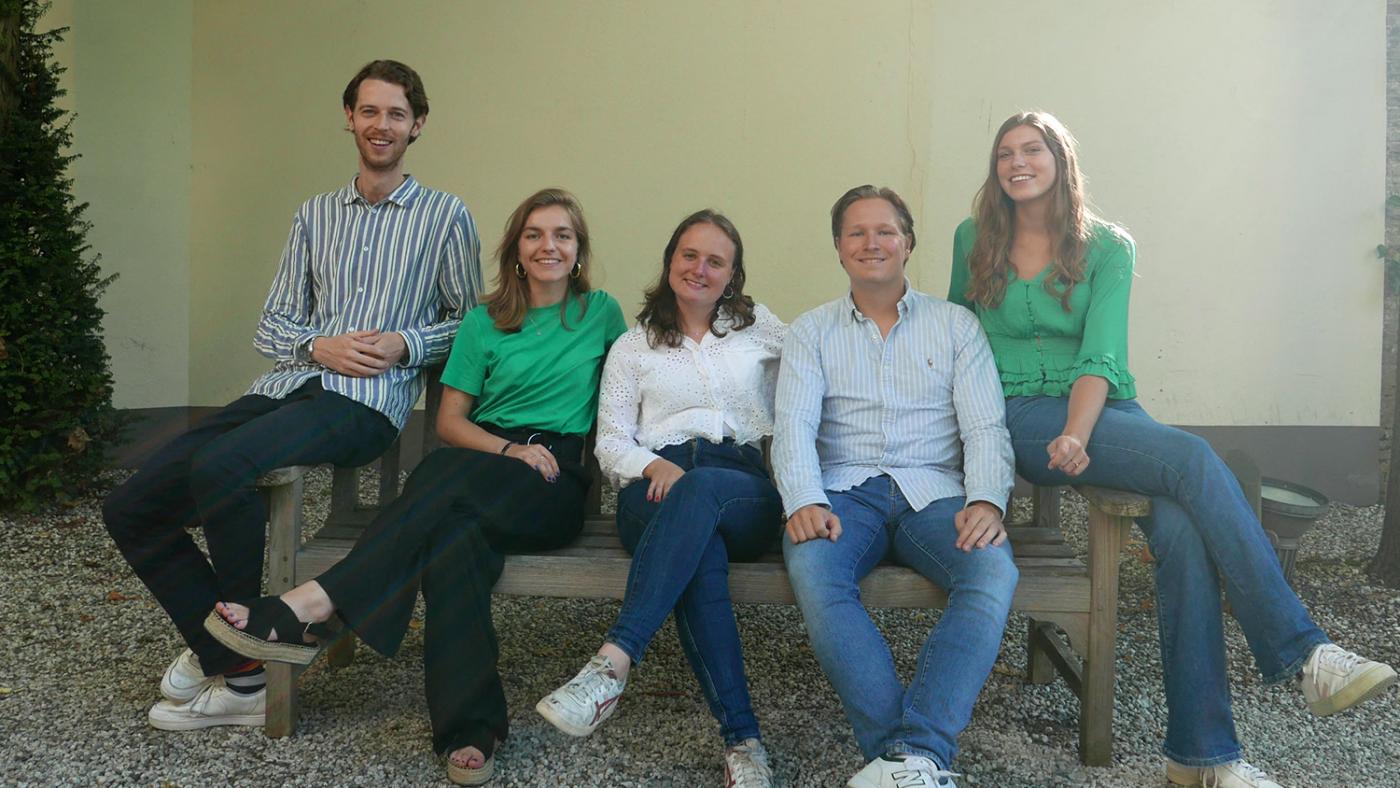Plein Publiek introduces students to civil servant work
'Young people can make a difference working for the government’

A grey-haired man sits at his computer at an office and stares out of the window. His desk is somewhat dusty, the numbers on the buttons of his landline phone have faded away, and his filing cabinet is filled to the brim with yellowing papers. His colleagues are taking a coffee break, chatting about yesterday’s football match.
Many UU students still imagine this stereotype when they think about civil servants. “When I was studying Governance, I noticed that many negative ideas are circulating about the public sector,” says Floortje Jorna. “If even governance students aren’t excited about working for the government, imagine what other students think about it,” adds Janneke Jansink, also a former Governance student. Floortje: “I felt like I had to do something about that.”
In March 2022, Floortje and five other students founded a foundation called Plein Publiek (Public Square, Ed.) to change the image of the public sector. It organises events that bring together students and young civil servants. “There are so many ambitious young people in the public sector. In our events, they can introduce themselves and show that it can be fun to work there.”
You don’t need to study governance or public administration to work for the government, emphasises the foundation's board, which isn’t exclusively comprised of governance students either. “You can work as a communications expert, a data analyst, or a strategic advisor. Students from all sorts of disciplines can apply their knowledge to the public sector. An anthropologist can study how residents of a certain neighbourhood can improve the way they live together, for example.” That's why the foundation is in touch with all sorts of organisations and study associations. “We’re here to network and join forces,” says Floortje.
Image problem
The data is clear: there aren’t many young people working for the government in the Netherlands. The annual report of the national government for the year 2021 states that only one in ten civil servants is younger than 30 years old. That’s a relatively small number, considering the average across the Netherlands is around 3 in 10 employees.
Plein Publiek believes that the government should also do something to recruit more young graduates. Apart from the stereotypes, the image of the government has deteriorated in recent years due to crises such as the child benefits scandal. Floortje: “The government has been in the news for extremely negative things lately, so they need to take extra steps to make themselves look interesting to young recruits.”
When attending career fairs, the board can't help but notice that commercial companies present themselves in a more attractive way than governments do. “Those companies have great recruitment or HR departments, so they know how to sell themselves at job fairs. They offer benefits such as free drinks after work or ski trips for the employees. If you can choose between a modern organisation and one that looks boring and has a negative image to boot, no wonder students would rather work for a consultancy business.”
But that’s a shame, according to board member Iris Schrameyer. “Young civil servants are sorely needed. Without a young point of view, policies will remain the same. Many students reject the idea of working for the government, but young civil servants can make a big difference, especially when it comes to issues that matter to them, like the housing crisis.”
Running the foundation
Aside from running the foundation, Iris is pursuing a Master’s degree in Governance. As for Janneke and Floortje, they work as researchers and advisors in the public domain at a commercial organisation. Floortje started working there as an intern. “The decision to do my internship there was partially inspired by the negative stereotypes about government work. I didn’t have much of an idea about career options in the government sector back when I was a student. That’s why I started Plein Publiek: to discover what young graduates can do for the government.”
Even though they aren’t working for the government themselves, they’re happy to do something meaningful through the organisation. “I can’t imagine spending my day thinking about selling toothpaste. I’d rather research how to increase equal opportunities in education or how to make people living in this city enthusiastic about the climate transition,” says Floortje.
Being part of an organisation's board has been a learning experience, too. It is very time-consuming, especially when combined with work or study: “In the end, we have to consider everyone's capacity. It’s part of the learning experience to do this together, despite the different schedules.”
She continues: “Thanks to Plein Publiek, I know a lot more about governmental work. In an ideal world, I’d be working for the government shortly. I just have to figure out whether that type of work suits me."
The board also has to deal with financial challenges. “It costs money to set up a foundation and organise activities like this, but that teaches you how to obtain that money and what steps to take.” In some cases, the foundation gets voluntary financial gifts from other organisations it works with, but Plein Publiek has also received a monetary contribution from the Utrecht University Foundation.
The board hopes to organise its next event in the spring. Its theme will probably be security. “Guests from organisations like Fiod (Fiscal Information and Investigation Service), the National Terrorism and Security Coordinator and the military police will talk about their work and host interactive sessions. We want to create an open ambience where all sorts of questions can be asked,” explains Iris.